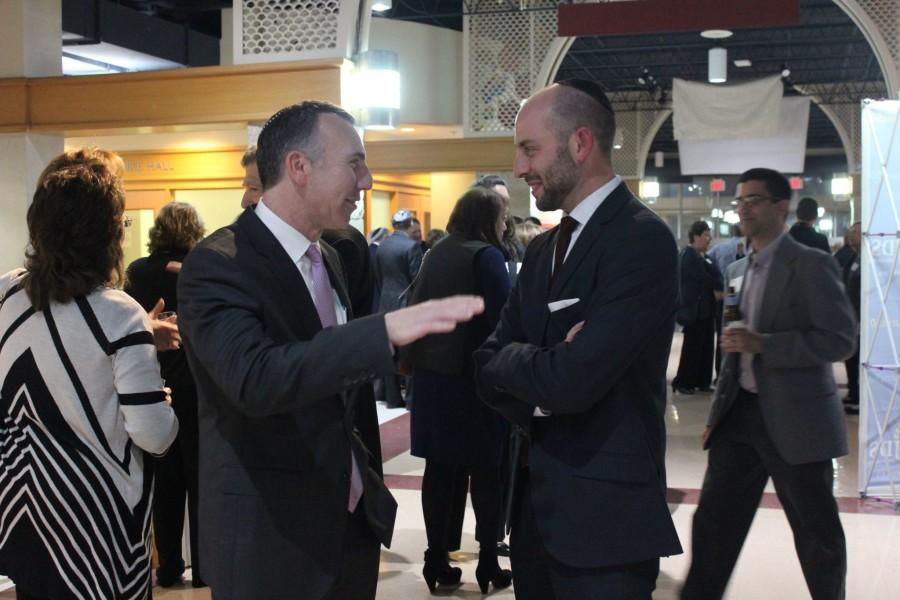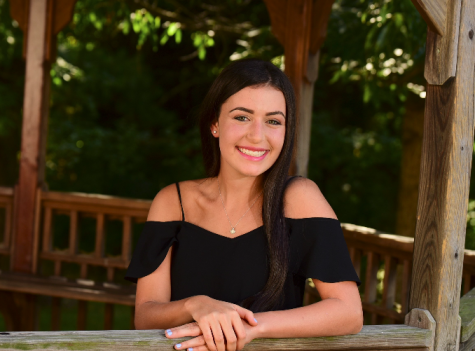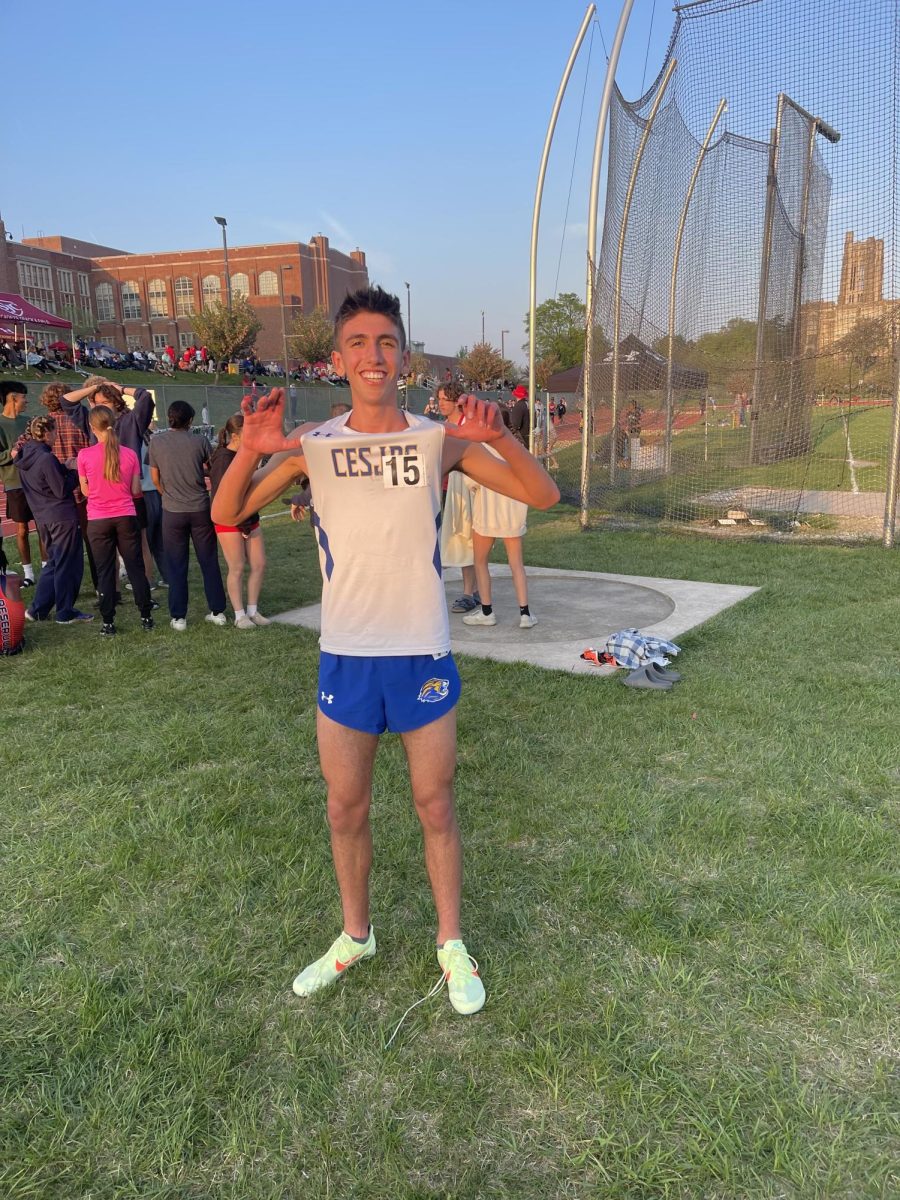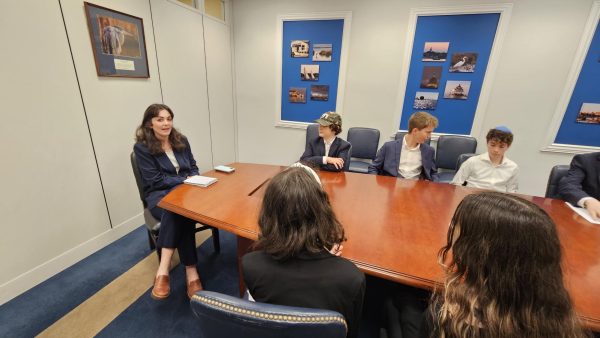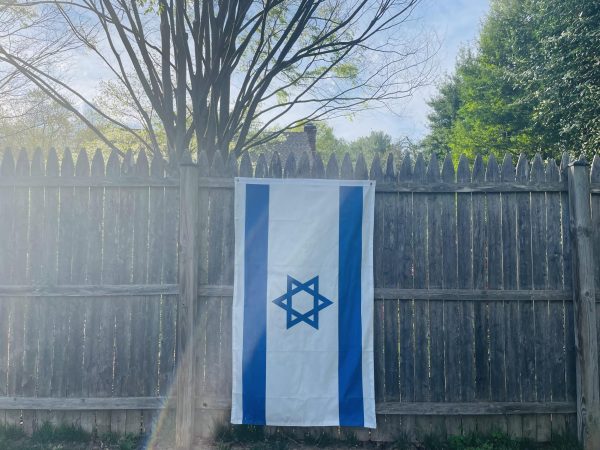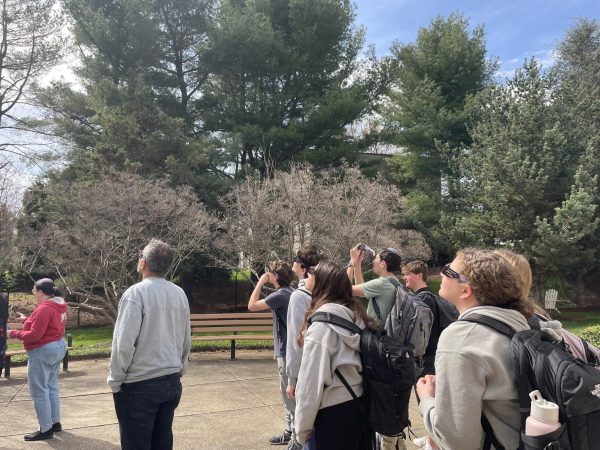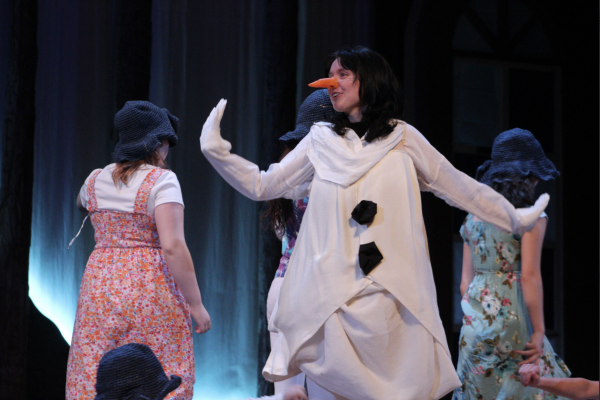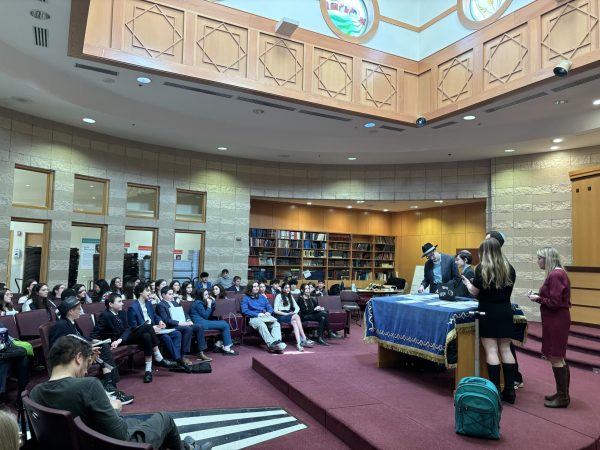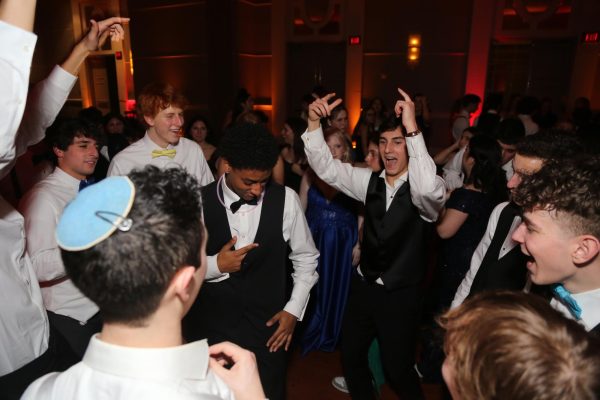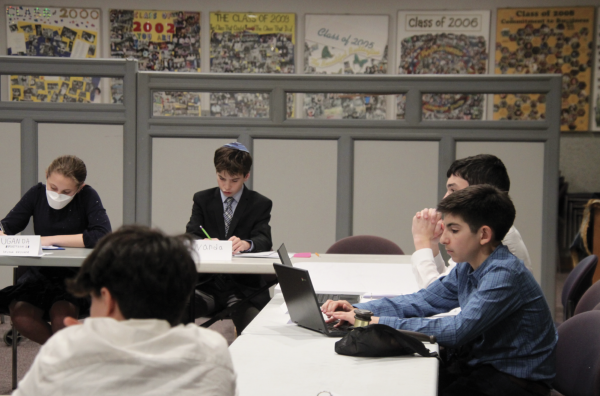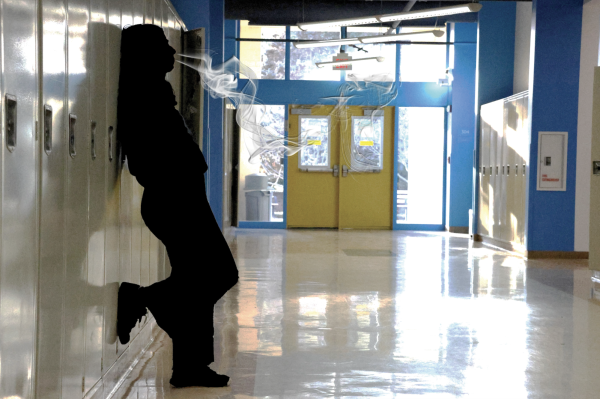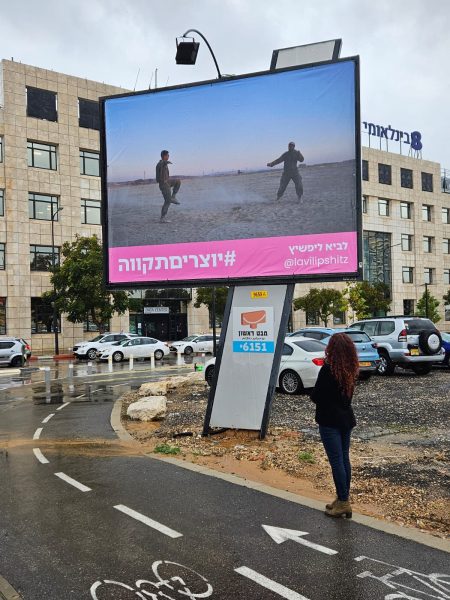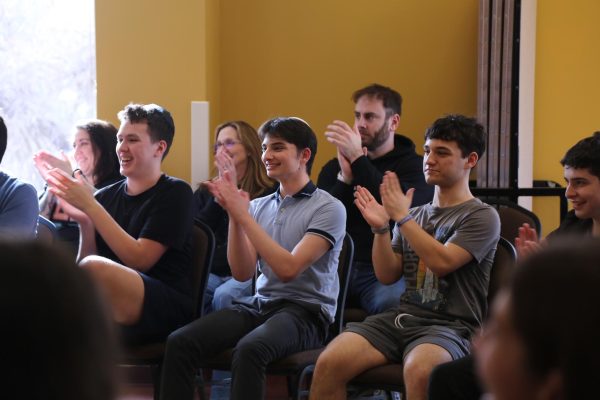Q&A with alumnus Stephen Krupin
Alumnus Stephen Krupin chats with Head of School Rabbi Mitchell Malkus at the Founders’ Day Celebration.
November 2, 2015
Alumnus Stephen Krupin, who has previously worked as chief speechwriter for Secretary of State John Kerry, director of speechwriting on President Obama’s re-election campaign, and chief speechwriter to Senate Majority Leader Harry Reid, spoke with The Lion’s Tale when he visited CESJDS as part of the Founders’ Day celebration.
Lion’s Tale: Can you tell us a little bit about yourself, and your career?
Stephen Krupin: I was a lifer here, then I graduated and went to Northwestern where I studied journalism and political science. I worked on the Daily Northwestern at school and also on the campus radio station, and as an intern covering Capitol Hill while I was still at school. Afterwards, I went into public relations, public affairs, strategic communications type work, working for Fortune 500 companies as a spokesman, as a writer and as a strategist. After a few years, I went into politics, where I’ve been around ever since. My first job in politics was on the Hill as a press secretary to Senate Majority Leader Harry Reed right as he became majority leader in 2007, and in 2008, went down to Florida and was a press secretary in the President’s first election campaign, came back to Capitol Hill to leader Reed’s office and became his speechwriter for about two and a half years, during the debates over Health Care, Wall Street Reform, the confirmation of two Supreme Court Justices, and Senator Reed’s own reelection in Nevada. In 2011 when the president started his reelection campaign in Chicago, I moved up there and started and built and led the speech writing team. I was director of speechwriting on his reelect, worked there for a year and a half, and after we won, I came back to Washington and connected with then Senator Kerry who had just been nominated to be Secretary of State, and joined him at the State Department — walked into the building on day one with him, and was his chief speechwriter at the State Department for a while, including travelling with him to more than 35 countries during some pretty tense times in our foreign policy. Now, I lead an executive communications practice at a public affairs firm called SKDKnickerbocker, where I write speeches and media train for television interviews CEO’s, candidates, issue advocates, and I teach speechwriting to graduate students at Georgetown University.
LT: What motivated you to choose this career path?
SK: I have always loved writing, history, and politics, and speechwriting is a pretty great intersection of all three especially when it’s political speechwriting. I remember the hardest class at JDS was always 11th grade honors English. I don’t know if that’s still the case, but that was always the class that was held up as the hardest class at school, and I think that gave me a sense of the importance of being able to write well, because it was held up in this community as such an important class to do well in, and a hard class to do well in. So writing was always elevated as a challenge, and one that I always enjoyed doing. So that love of writing and a love of history that you learn when you go to a school that is filled with lessons on history — both ancient and modern — and growing up in this region and having a natural love for politics from being around here, where national news is local news, that all led me to speech writing.
LT: Are there any other ways that you feel like your JDS education impacted your career choices, or later decisions in life?
SK: One thing that’s great about JDS is that you can’t leave this school without having a strong sense of community and a strong sense of your values. I think that in my personal and professional life since JDS, I’ve always been attracted to experiences that are in tight-knit communities where everyone shares common, core, fundamental values. That’s definitely true on political campaigns where you have a community of like-minded people who are all fighting together for a common goal that is grounded in your values, and that’s true in any successful organization, and I think that going here gave me a greater appreciation for why that’s important.
LT: What’s it like to be back at JDS?
SK: Yeah, it’s really weird. Coming back here feels like home, even though I was only in this building for half of my senior year. That’s what’s pretty special about this community, is it feels like home. I went to the Lower School this afternoon and my nephew is in kindergarten there. That’s where I spent kindergarten to 11th grade, in that building. The lockers are so much smaller than I remember. It’s just really interesting to show up in a place you haven’t been in 15 years and know your way around. I think that only happens in your childhood home, and maybe in a school like this. It’s just great. I never overlapped with any of the students here, some faculty I had, a lot of them are new, a lot of the administration is new, but it still feels like a very familiar place.
LT: Do any specific memories come back to you from being here today?
SK: You turn every corner and you remember something. I walked into the auditorium here and I remembered a conversation that we had about college admission or something — a conversation that I would have never remembered had I not walked into that room. I turned the corner in the middle of the hallway here where our lockers were as seniors, and I had a very vivid flashback to the last day of school. For me, it’s not just this building or the other building, it’s driving up Rockville Pike or driving up Montrose, and it starts to feel like familiar ground, it starts to feel like home.
LT: Can you tell us a little bit about your work with the Lion’s Tale?
SK: I knew from a very early age that I loved journalism and that I wanted to be on the Lion’s Tale. I remember submitting an article as an 8th grader because I was on a little league team of JDS players before we could play for the school, and we had taken this father-son trip to the baseball hall of fame in Cooperstown, and I wrote this story about it. And I remember getting this response back that was like we don’t accept submissions, you have to be on Lion’s Tale. And I was like, great, how do I get on Lion’s Tale, let’s do this! So I worked on Lion’s Tale for a few years, I was a news editor, and I was in the Lion’s Tale room today, and there’s that file cabinet with all the old issues, and I found my first byline, which was a story for 1997 about some group that had come and performed at the school. And what was really interesting was that I was flipping through the issues and there was a front page story that I wrote about the architecture and financing for this building coming through so that this campus could open in 1999. So to read that 18 years later, to be standing in that building — it’s great. Without the Lion’s Tale, I never would have known that I loved journalism as much to go to journalism school, and without going to journalism school, I never would have had the opportunity to start a career in writing.
Click here to read more about the Founders’ Day celebration.


